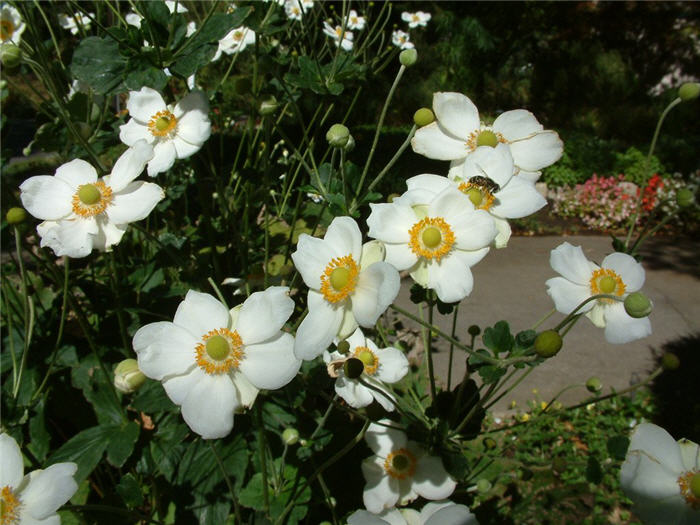| Botanical Name: Anemone x hybrida | |
| Common Name: Japanese Anemone |

-
Anatomy
-
Culture
-
Design
Plant Type
Perennial
Height Range
1-3'
Flower Color
Pink, Yellow, White
Flower Season
Fall
Leaf Color
Dark Green
Bark Color
n/a
Fruit Color
n/a
Fruit Season
n/a
Sun
Half, Shade
Water
Medium, High
Growth Rate
Moderate
Soil Type
Clay, Loam
Soil Condition
Average, Rich, Well-drained, Moist
Soil pH
Neutral
Adverse Factors
Invasive
Design Styles
English Cottage, Formal, Japanese, Woodland
Accenting Features
Fall Color, Showy Flowers
Seasonal Interest
Fall
Location Uses
Entry, Perennial Border, Shrub Border, Foundation, Patio, Raised Planter
Special Uses
Container, Cut Flowers, Naturalizing, Small Spaces
Attracts Wildlife
Butterflies
Information by: Stephanie Duer
Photographer: Linda Engstrom
Photographer: Linda Engstrom
-
Description
-
Notes
Japanese anemone are a long-lived, fibrous-rooted perennial with lovely single or multi-petaled flowers in late summer to early fall, depending on the cultivar. Its habit is upright, with the flowers appearing on long stems held over the foliage. Foliage is green, a little crinkly, and lobed. Flower colors include white, pink, and rose. Once established, it spreads as long as the roots remain undisturbed. Nice in shady perennial or shrub borders; a lovely cut flower. Grows about 2 to 4 feet tall, and about half as wide (depending on the cultivar) but it will spread with time.
Grow in well drained, loamy soils in part to full shade. Though it requires more moisture than A. tomentosa, the soil shouldn't be wet and does need to be well draining to avoid the crown rotting. Resistant to deer and rabbits, but attractive to butterflies.